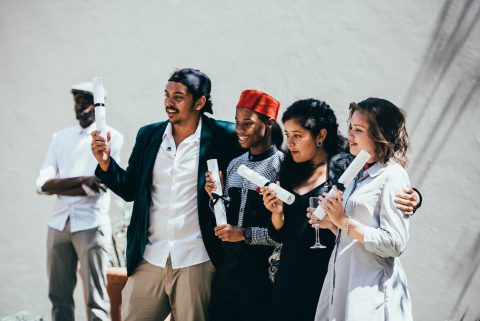Made in SA
Rocking World Stages
The British Guardian recently featured South African singer and songwriter Nakhane, 30, in its regular One to Watch slot, describing his voice as “startling” and his music “fearless”.
“There’s an irresistible boldness to the rising South African singer who has cast aside religion and embraced his sexuality,” wrote culture reporter Kate Hutchinson after Nakhane dropped his second album, You Will Not Die.
This boldness didn’t come easy. From the dusty streets of Alice in the Eastern Cape, where he grew up in a deeply religious community praying to God to “heal” his homosexuality, Nakhane is now living in London to be closer to his label BMG.
He says he no longer “hides” who he is. He’s changed musical tack too, moving from “guitar music” on his first album, Brave Confusion, to electronics. Nakhane is now touring Europe, including Rotterdam, Paris and Zurich.
COO of the David Gresham Entertainment Group, Andrew Mitchley, says there’s currently an international appetite for African music. “SA artists such as Black Coffee and Goldfish are leading the way,” explains Mitchley. “Aside from breaking ground commercially with their records, they are selling out big venues, and making an impact on music culture around the world.” But just behind Black Coffee or Goldfish in that intercontinental queue are myriad more SA artists pushing to be let in.
Going global
Alice Phoebe Lou, 24, is currently in California recording a full-length album. Eight years ago, the singer/songwriter left Cape Town with an acoustic guitar and a synthesiser to busk on the streets of Berlin. “It was tough and humbling in the beginning,” says Lou. It paid off. Now she’s topping German and Austrian chart lists after a video of her performance at TEDxBerlin in 2014 went viral. Her new album, she says, has been waiting to be “set free” for a while. “Everything clicked into place in a few weeks, and here I am, with an incredible producer, and amazing musicians supporting me.”
Lou’s song She was used in a documentary about the life of actress and inventor Hedy Lamarr last year. It was shortlisted for Best Original Song at the Oscars. This year is going to be full of shows, she says. “The world is getting smaller and I’m off to Japan and Canada and I have a full US and European tour, too. I guess the toughest thing is financing everything, and it takes a lot of hard work to make the money appear.”
Hitting international markets can be expensive, but Mitchley says it’s necessary. “In the new world of music streaming, volume is key to sustainability,” he explains. “South Africa is a tiny market by comparison to the USA, UK, Germany and Japan, so if you want to make an impact globally, your music needs to cross borders and continually seek out new markets.
“Off the back of creating a legitimate short-term buzz in a new market, it’s vital that a good second phase is implemented straightaway, either by way of touring or releasing even better music.”
Known names
According to publicist and celebrity coach Thanduxolo Jindela, “Being a brand is what gets local artists noticed overseas. Social media is a very powerful tool.”
The importance of recognition is nothing new. “He says while Miriam Makeba and Hugh Masekela possessed huge talent, they also leveraged their political activism. “Makeba was very aware of her brand,” he says. From her caftans to her headdresses, her image was carefully maintained. His advice to artists is: “Remember, sexuality can’t sing alone. Your content is the important thing. What are you selling?”
Jindela says he’d put his money on pop-soul singer Nomfusi, who played Miriam Makeba in the 2013 movie Mandela: Long Walk to Freedom, being one of SA’s next break-out stars.
Nomfusi has slowly been making waves since she was discovered singing at a restaurant 10 years ago. She shared a stage with Lionel Richie at Germany’s Stimmen Festival in 2015. Now with 20 international tours under her belt, Rolling Stone describes her as exuding “a deep sensuality and social expansiveness”.
Meanwhile, Mitchley says, David Gresham Records is backing an “incredible Xhosa-speaking female Afro-pop singer, Zikhona”. “We’ve just released two singles, Umlilo and uMama, both of which are starting to break on radio at the moment. Our long-term objective with Zikhona is to win a Grammy Award.”
What will it take? “It’s always a combination of a couple of things. Above all else, it’s about the song. Without a great song, it’s difficult to be successful. But then it gets down to work. I believe it’s 10% talent and 90% hard work by both the artist and the team.”
And as Lou puts it, “Young people have such a fire and so many bright ideas. We can use all of our strengths to make magic happen.”




